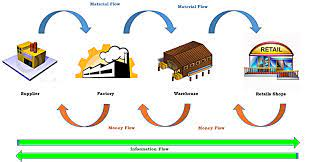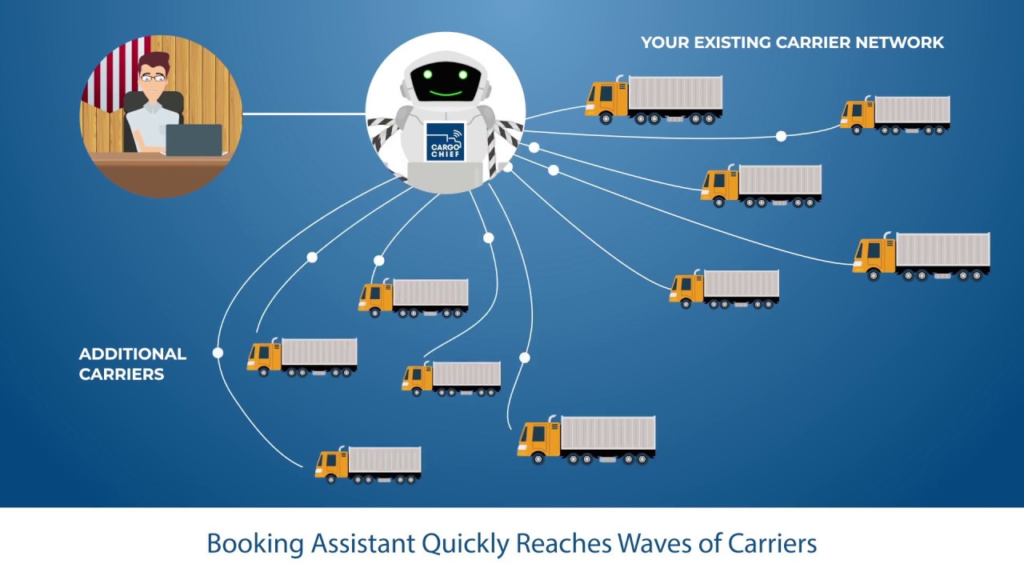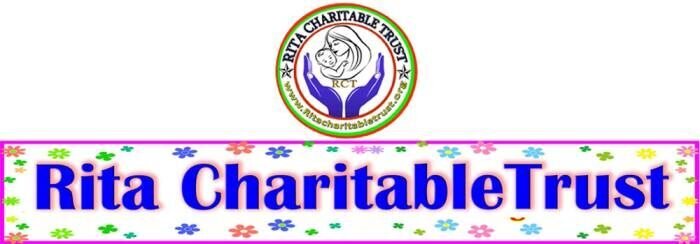Consignment Booking Assistant (1 years diploma)
Consignment Booking Assistant click here
Brief Job Description
Consignment Booking Assistant is also known as Booking Assistant, Booking Clerk or Order Booker.
Individuals in this role are responsible for receiving customer order details, checking market prices,
availability and making bookings with transport companies to pick up the consignment. They are also
responsible for going to the client location, checking the goods, preparing the Lorry Receipt (LR), updating the information in the computer system and billing.

Personal Attributes
This job requires the individual to work well with various individuals including truck drivers, warehouse
representatives and transport coordinators. The individual must be able to prioritize and execute tasks
within scheduled time limits. The individual should be able to maintain high concentration levels and have
a thorough understanding of routes and vehicle loads.
Prepare for Booking
Description
This unit is about preparing for booking activities.
Elements and Performance Criteria
Obtain all the necessary information
To be competent, the user/individual on the job must be able to:
PC1. Obtain the work schedule, the list of clients to be visited for the day and the sequence from
the transport manager.
PC2. Obtain the consignment details for each client and the booking checklist from the transport
manager.
PC3. Find out if which are the first time clients and the account balance, credit limit details for long
term clients.
PC4. Understand priorities or special conditions (if any) among the consignments.
Prepare computer system and obtain required stationary
To be competent, the user/individual on the job must be able to:
PC5. Switch on the computer and login using company credentials.
PC6. Check and ensure that the computer and the logistics software are working well without any
issues
PC7. Ensure there is sufficient stationery like paper, pens, lorry receipts (LR), etc.
PC8. Switch on printer, check ink levels in cartridge, refill/change if required and ensure that the
printer is in working condition.
PC9. Have any issues/problems solved before starting work.
Knowledge and Understanding (KU)
The individual on the job needs to know and understand:
KU1. types of documentation in organization
KU2. knowledge of organizational products and procedures
KU3. procedures for accepting customer orders
KU4. risk and impact of not following defined procedures/work instructions
KU5. knowledge of computer systems used for documentation of consignment information.
KU6. knowledge of all relevant safety and security procedures
KU7. knowledge of standard operating procedures (sops) and how to react in emergencies.
KU8. knowledge of procedure followed while booking trucks to pick up and transport
consignments

KU9. knowledge of transport companies the organization works with and their processes
KU10. knowledge of processes involved in inbound and outbound transport
KU11. knowledge of details required while booking a customer order
KU12. knowledge of distances to different destination.
KU13. knowledge of pricing strategies in the market
KU14. knowledge to use the computer for electronic documentation of information
KU15. types of workplace hazards that one can encounter on the job and safe operating practices.
KU16. knowledge of possible difficulties in booking customer orders.
KU17. knowledge of possible common challenges and solutions for booking orders (delays, low
capacity utilization etc.)
Generic Skills (GS)
User/individual on the job needs to know how to:
GS1. note down details regarding the inspection of outbound customer consignments
GS2. fill out forms, inspection checklists pertaining to the customer consignments.
GS3. prepare detailed reports for management
GS4. read and follow instructions in the checklists, order lists etc
GS5. read and understand instructions from the sop.
GS6. communicate clearly with managers, peers and other staff at the hub/station
GS7. regularly communicate with all employees to ensure activities are running smoothly
GS8. provide advice and guidance to peers and juniors
GS9. act objectively , rather than impulsively or emotionally when faced with difficult/stressful or
emotional situations
GS10. ability to make a judgment as to whether a customer order can be taken up or needs to be
dropped
GS11. adjust according to volume, capacity and manpower needs during peak and non-peak hours
GS12. prioritize and execute tasks within the scheduled time limits
GS13. maintain schedules and punctuality.
GS14. flexibility to re-assess schedule in case of delays/additional orders
GS15. understand the customer requirements and ensure that they are met
GS16. identify trends/common causes for errors and suggest possible solutions to the transport
manager.
GS17. handle day to day problems like delays, staffing shortage, etc
GS18. suggest methods to streamline booking of consignments
GS19. ability to estimate the price to be billed to the customer for transporting the consignment to
a destination
GS20. ability to assess the type of truck required and whether ftl or ltl is to be used
GS21. ability to count numbers and perform basic mathematical operations
GS22. ability to concentrate on task at hand and complete it without errors
Perform Consignment Booking
Description
This unit is about booking consignments
Elements and Performance Criteria
Receive Customer Orders and Arrange transportation
To be competent, the user/individual on the job must be able to:
PC1. receive customer orders through email or through telephone calls.
PC2. check for loading arrangements and input the details regarding the goods in the
consignment, payment method, pick up address, destination and date when the consignment
must be delivered,etc. in the system.for new customers, create a new account (if applicable)
and for existing customers, check details of their account before accepting bookings.
PC3. based on these details, determine the type of truck needed and whether a full truck load
(FTL) or less than truck load (LTL) is needed.
PC4. if FTL is to be used, find out the market rates depending on the destination and the load.
PC5. select the most economical options and contact the transport companies to check if they
have any truck available to meet the requirement
PC6. if trucks are available, hold a booking or else contact the provider of the next most
economical option, check for availability and hold a booking
PC7. if ITL is to be used, find out the fixed market rate depending on the destination and the load
PC8. contact transport companies, check for availability and hold a booking
PC9. add the company’s mark up and provide the quote to the customer
PC10. receive approval from the customer and confirm the bookings.
PC11. print booking invoices with consignment details for each customer.
PC12. escalate to transport manager if there are no available truck companies to meet the
customer deadlines.
PC13. if the order needs to be dropped, call up the client at the earliest and explain inability to
carry out the order
Coordinate Consignment pick up and process documents
To be competent, the user/individual on the job must be able to:
PC14. ensure papers like road permit are available and coordinate with the customer and the
transport companies to fix up a time to pick up the consignment. go to the client location at
the agreed time, count and verify the consignment with the booking invoice.
PC15. if there are any discrepancies, have them resolved with the customer.
PC16. fill out the lorry receipt (LR), hand over one copy to the customer, one copy to the truck
driver and retain 3 copies for the department.
PC17. depending on the mode of payment, add it to the account or receive the agreed percentage
of the cost as advance.
PC18. visit other customers at the agreed times, check the goods and complete the documentation
PC19. for new customers, create a new account (if applicable) and for existing customers, check
details of their account before accepting bookings.
PC20. coordinate with the customer and the transport companies to fix up a time to pick up the
consignment
Knowledge and Understanding (KU)
The individual on the job needs to know and understand:
KU1. types of documentation in organization
KU2. knowledge of organizational products and procedures
KU3. procedures for accepting customer orders
KU4. risk and impact of not following defined procedures/work instructions
KU5. knowledge of computer systems used for documentation of consignment information
KU6. knowledge of all relevant safety and security procedures
KU7. knowledge of standard operating procedures (sops) and how to react in emergencies
KU8. knowledge of procedure followed while booking trucks to pick up and transport
consignments
KU9. knowledge of transport companies the organization works with and their processes
KU10. knowledge of processes involved in inbound and outbound transport
KU11. knowledge of details required while booking a customer order
KU12. knowledge of distances to different destination.
KU13. knowledge of pricing strategies in the market.

KU14. knowledge to use the computer for electronic documentation of information
KU15. types of workplace hazards that one can encounter on the job and safe operating practices.
KU16. knowledge of possible difficulties in booking customer orders.
KU17. knowledge of possible common challenges and solutions for booking orders (delays, low
capacity utilization etc.)
Generic Skills (GS)
User/individual on the job needs to know how to:
GS1. note down details regarding the inspection of outbound customer consignments
GS2. fill out forms, inspection checklists pertaining to the customer consignments
GS3. prepare detailed reports for management.
GS4. read and follow instructions in the checklists, order lists etc
GS5. read and understand instructions from the sop.
GS6. communicate clearly with managers, peers and other staff at the hub/station
GS7. regularly communicate with all employees to ensure activities are running smoothly
GS8. provide advice and guidance to peers and juniors
GS9. act objectively , rather than impulsively or emotionally when faced with difficult/stressful or
emotional situations
GS10. ability to make a judgment as to whether a customer order can be taken up or needs to be
dropped
GS11. adjust according to volume, capacity and manpower needs during peak and non-peak hours
GS12. prioritize and execute tasks within the scheduled time limits
GS13. maintain schedules and punctuality.
GS14. flexibility to re-assess schedule in case of delays/additional orders
GS15. understand the customer requirements and ensure that they are met
GS16. identify trends/common causes for errors and suggest possible solutions to the transport
manager.
GS17. handle day to day problems like delays, staffing shortage, etc
GS18. suggest methods to streamline booking of consignments
GS19. ability to estimate the price to be billed to the customer for transporting the consignment to
a destination
GS20. ability to assess the type of truck required and whether FTL or ITL is to be used
GS21. ability to count numbers and perform basic mathematical operations
GS22. ability to concentrate on task at hand and complete it without errors
Peform Post Booking Activities
Description
This unit is about performing post-booking activities
Elements and Performance Criteria
Return to Office and update system information
To be competent, the user/individual on the job must be able to:
PC1. return to office after visiting all the clients and refresh the computer system
PC2. verify existing details about each order and with the respective lr and update any changes as
required in the system.
PC3. update tracking information for each order so that it can be tracked by the consignment
tracking executive

PC4. send information pertaining to the documentation clerk so that billing invoices can be raised
for each customer order
PC5. file the LR copies for records purposes according to company policies.
Report to Management
To be competent, the user/individual on the job must be able to:
PC6. inform the transport manager about any delays in picking up of consignments, missed pick
ups by the transport providers or cancelled orders
PC7. report any issues faced in negotiation with transport companies regarding prices or any
other issue while booking customer orders.
PC8. prepare reports on the trend in market price of FTL, LTL, reasons for cancelling or being
unable to take up a customer order, etc.
Log off computer and clean up
To be competent, the user/individual on the job must be able to:
PC9. save all data, safely log off and switch off the computer
PC10. dispose any unnecessary documentation and forms.
PC11. visually inspect the work area to ensure that it is clean
PC12. check to ensure that the computer is off and that the work area is ready for the next work
day.
Knowledge and Understanding (KU)
The individual on the job needs to know and understand:
KU1. types of documentation in organization
KU2. knowledge of organizational products and procedures
KU3. procedures for accepting customer orders
KU4. risk and impact of not following defined procedures/work instructions
KU5. knowledge of computer systems used for documentation of consignment information
KU6. knowledge of all relevant safety and security procedures
KU7. knowledge of standard operating procedures (sops) and how to react in emergencies
KU8. knowledge of procedure followed while booking trucks to pick up and transport
consignments
KU9. knowledge of transport companies the organization works with and their processes
KU10. knowledge of processes involved in inbound and outbound transport
KU11. knowledge of details required while booking a customer order
KU12. knowledge of distances to different destination
KU13. knowledge of pricing strategies in the market.
KU14. knowledge to use the computer for electronic documentation of information
KU15. types of workplace hazards that one can encounter on the job and safe operating practices
KU16. knowledge of possible difficulties in booking customer orders.
KU17. knowledge of possible common challenges and solutions for booking orders (delays, low
capacity utilization etc.)
Generic Skills (GS)
User/individual on the job needs to know how to:
GS1. note down details regarding the inspection of outbound customer consignments.
GS2. fill out forms, inspection checklists pertaining to the customer consignments.
GS3. prepare detailed reports for management.

GS4. read and follow instructions in the checklists, order lists etc
GS5. read and understand instructions from the SOP.
GS6. communicate clearly with managers, peers and other staff at the hub/station
GS7. regularly communicate with all employees to ensure activities are running smoothly
GS8. provide advice and guidance to peers and juniors
GS9. act objectively , rather than impulsively or emotionally when faced with difficult/stressful or
emotional situations
GS10. ability to make a judgment as to whether a customer order can be taken up or needs to be
dropped
GS11. adjust according to volume, capacity and manpower needs during peak and non-peak hours
GS12. prioritize and execute tasks within the scheduled time limits
GS13. maintain schedules and punctuality.
GS14. flexibility to re-assess schedule in case of delays/additional orders
GS15. understand the customer requirements and ensure that they are met
GS16. identify trends/common causes for errors and suggest possible solutions to the transport
manager.
GS17. handle day to day problems like delays, staffing shortage, etc
GS18. suggest methods to streamline booking of consignments
GS19. ability to estimate the price to be billed to the customer for transporting the consignment to
a destination
GS20. ability to assess the type of truck required and whether ftl or ltl is to be used
GS21. ability to concentrate on task at hand and complete it without errors
Maintain Health, Safety and Security Measures while booking consignments
Description
This unit is about health and safety measures
Elements and Performance Criteria
Maintain health, safety and security measures during all activities
To be competent, the user/individual on the job must be able to:
PC1. comply with safety regulations and procedures in case of fire hazards, biohazards, etc.
PC2. wear all safety equipment including protective gear, helmets etc. when visiting customers
and checking goods.
PC3. follow organization procedures with respect to documentation
PC4. recognize and report unsafe conditions and practices
PC5. adhere to security regulations of the company
PC6. in case of signs of any emergency situation or accident or breach of safety immediately
follow organizational protocol to deploy action
PC7. identify reasons for occurrence of incident
PC8. capture reasons and response/action taken into incident report/note to manager
PC9. report any deviations from standard protocol along with reasons (if any)
PC10. visually inspect the activity area and equipment for appropriate and safe condition
Knowledge and Understanding (KU)
The individual on the job needs to know and understand:
KU1. types of documentation in organization
KU2. knowledge of organizational products and procedures
KU3. procedures for accepting customer orders
KU4. risk and impact of not following defined procedures/work instructions
KU5. knowledge of computer systems used for documentation of consignment information
KU6. knowledge of all relevant safety and security procedures
KU7. knowledge of standard operating procedures (sops) and how to react in emergencies
KU8. knowledge of procedure followed while booking trucks to pick up and transport
consignments
KU9. knowledge of transport companies the organization works with and their processes
KU10. knowledge of processes involved in inbound and outbound transport.
KU11. knowledge of details required while booking a customer order.
KU12. knowledge of distances to different destination.
KU13. knowledge of pricing strategies in the market
KU14. knowledge to use the computer for electronic documentation of information
KU15. types of workplace hazards that one can encounter on the job and safe operating practices
KU16. knowledge of possible difficulties in booking customer orders.
KU17. knowledge of possible common challenges and solutions for booking orders (delays, low
capacity utilization etc.)
Generic Skills (GS)
User/individual on the job needs to know how to:
GS1. note down details regarding the inspection of outbound customer consignments.
GS2. fill out forms, inspection checklists pertaining to the customer consignments
GS3. prepare detailed reports for management.
GS4. read and follow instructions in the checklists, order lists etc
GS5. read and understand instructions from the SOP.
GS6. communicate clearly with managers, peers and other staff at the hub/station
GS7. regularly communicate with all employees to ensure activities are running smoothly
GS8. provide advice and guidance to peers and juniors
GS9. act objectively , rather than impulsively or emotionally when faced with difficult/stressful or
emotional situations
GS10. ability to make a judgment as to whether a customer order can be taken up or needs to be
dropped
GS11. adjust according to volume, capacity and manpower needs during peak and non-peak hours
GS12. prioritize and execute tasks within the scheduled time limits
GS13. maintain schedules and punctuality
GS14. flexibility to re-assess schedule in case of delays/additional orders
GS15. understand the customer requirements and ensure that they are met
GS16. identify trends/common causes for errors and suggest possible solutions to the transport
manager.
GS17. handle day to day problems like delays, staffing shortage, etc
GS18. suggest methods to streamline booking of consignments
GS19. ability to estimate the price to be billed to the customer for transporting the consignment to
a destination.
GS20. ability to assess the type of truck required and whether ftl or ltl is to be used
GS21. ability to count numbers and perform basic mathematical operations
GS22. ability to concentrate on task at hand and complete it without errors
Employability Skills (30 Hours)
Description
This unit is about employability skills, Constitutional values, becoming a professional in the 21st Century,
digital, financial, and legal literacy, diversity and Inclusion, English and communication skills, customer
service, entrepreneurship, and apprenticeship, getting ready for jobs and career development.
Scope
The scope covers the following :
Introduction to Employability Skills
Constitutional values – Citizenship
Becoming a Professional in the 21st Century
Basic English Skills
Communication Skills
Diversity & Inclusion
Financial and Legal Literacy
Essential Digital Skills
Entrepreneurship
Customer Service
Getting ready for Apprenticeship & Jobs
Elements and Performance Criteria
Introduction to Employability Skills
To be competent, the user/individual on the job must be able to:
PC1. understand the significance of employability skills in meeting the job requirements
Constitutional values – Citizenship
To be competent, the user/individual on the job must be able to:
PC2. identify constitutional values, civic rights, duties, personal values and ethics and
environmentally sustainable practices
Becoming a Professional in the 21st Century
To be competent, the user/individual on the job must be able to:
PC3. explain 21st Century Skills such as Self-Awareness, Behavior Skills, Positive attitude, selfmotivation, problem-solving, creative thinking, time management, social and cultural
awareness, emotional awareness, continuous learning mindset etc.
Basic English Skills

To be competent, the user/individual on the job must be able to:
PC4. speak with others using some basic English phrases or sentences
Communication Skills
To be competent, the user/individual on the job must be able to:
PC5. follow good manners while communicating with others
PC6. work with others in a team
Diversity & Inclusion
To be competent, the user/individual on the job must be able to:
PC7. communicate and behave appropriately with all genders and PwD
PC8. report any issues related to sexual harassment
Financial and Legal Literacy
To be competent, the user/individual on the job must be able to:
PC9. use various financial products and services safely and securely
PC10. calculate income, expenses, savings etc.
PC11. approach the concerned authorities for any exploitation as per legal rights and laws
Essential Digital Skills
To be competent, the user/individual on the job must be able to:
PC12. operate digital devices and use its features and applications securely and safely
PC13. use internet and social media platforms securely and safely
Entrepreneurship
To be competent, the user/individual on the job must be able to:
PC14. identify and assess opportunities for potential business
PC15. identify sources for arranging money and associated financial and legal challenges
Customer Service
To be competent, the user/individual on the job must be able to:
PC16. identify different types of customers
PC17. identify customer needs and address them appropriately
PC18. follow appropriate hygiene and grooming standards
Getting ready for apprenticeship & Jobs
To be competent, the user/individual on the job must be able to:
PC19. create a basic biodata
PC20. search for suitable jobs and apply
PC21. identify and register apprenticeship opportunities as per requirement
Knowledge and Understanding (KU)
The individual on the job needs to know and understand:
KU1. need for employability skills
KU2. various constitutional and personal values
KU3. different environmentally sustainable practices and their importance
KU4. Twenty first (21st) century skills and their importance
KU5. how to use basic spoken English language
KU6. Do and dont of effective communication
KU7. inclusivity and its importance
KU8. different types of disabilities and appropriate communication and behaviour towards PwD
KU9. different types of financial products and services
KU10. how to compute income and expenses
KU11. importance of maintaining safety and security in financial transactions
KU12. different legal rights and laws
KU13. how to operate digital devices and applications safely and securely
KU14. ways to identify business opportunities
KU15. types of customers and their needs
KU16. how to apply for a job and prepare for an interview
KU17. apprenticeship scheme and the process of registering on apprenticeship portal
Generic Skills (GS)
User/individual on the job needs to know how to:
GS1. communicate effectively using appropriate language
GS2. behave politely and appropriately with all
GS3. perform basic calculations
GS4. solve problems effectively
GS5. be careful and attentive at work
GS6. use time effectively
GS7. maintain hygiene and sanitisation to avoid infection








